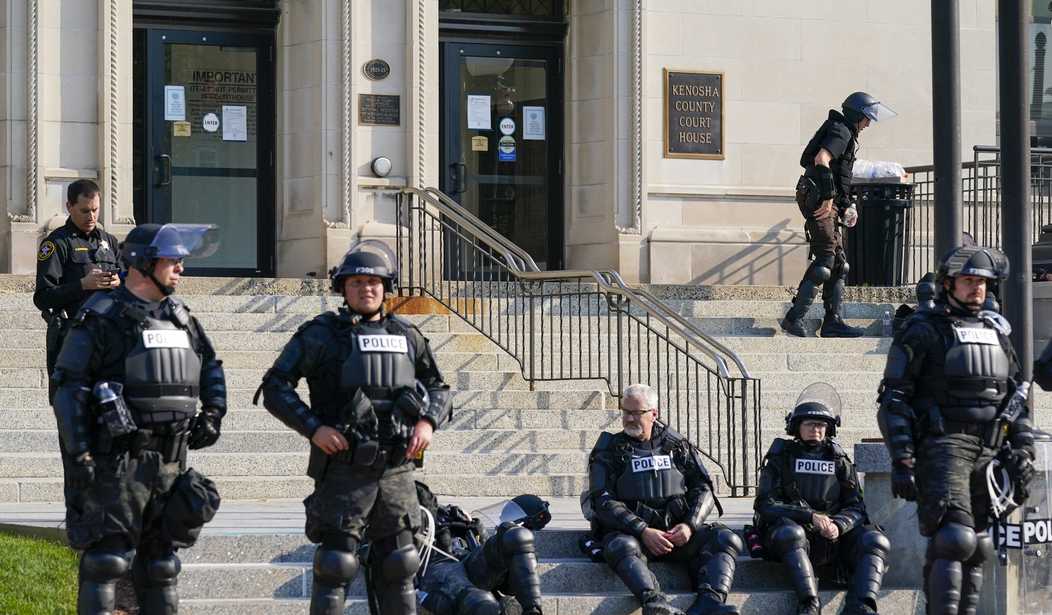City Journal published a story today which looks into why so many officers cut their careers short or moved to more hospitable locations last year. First, by way of reminder, here’s a summary of some of the decline in major cities:
The NYPD’s headcount fell to its lowest level in ten years. In Chicago, police retirements rose 15 percent. The San Francisco Police Department is short 400 officers; over 115 officers, including an entire unit dedicated to crowd control, have left the Portland PD; and nearly 200 have left the Minneapolis PD or are on leave, rendering the department unable to engage in proactive policing. A recent survey of police departments found that hiring fell an average of 5 percent in 2020, while resignations rose 18 percent and retirements a whopping 45 percent.
The reasons for this wave of retirements and resignations aren’t hard to fathom. Charles Lehman spoke to a number of officers who’d left and they all basically told him the same story: They suddenly had no support from the community. But that message of being rejected didn’t come to them in the form of a calm, rational discussion. Often it was brought to them in a much more personal way by activists who were looking to destroy property and hurt police officers.
As one now-retired NYPD officer put it: “One day, the good guys became the bad guys and the bad guys became the good guys.”…
“[The Floyd] protests were very violent, very anti-police,” another now-retired NYPD cop said. “Some of these protests, I had officers in my command who were assaulted while they policed some of these protests. One of my lieutenants had a brick thrown on top of his helmet.”
And those sorts of encounters led a lot of officers to conclude the risks of the job were no longer worth it. The story relates how a former Minneapolis officer was called to a scene where a deranged man apparently having some kind of mental health episode and was causing a disturbance. The officer was on his way to the scene when the man collapsed and died. Because this happened before police arrived, police weren’t blamed. But the officer realized that if the man’s collapse had happened just a few minutes later, say after he was tased by police, then it would have become the next cause celebre for Black Lives Matter and the media. “If I had made a decision to use a taser, and then he fell over dead, the death certificate would say homicide, complications of police use of a conducted energy device. My name would immediately be in the national news,” the officer said.
But of course it wasn’t just this one officer in Minneapolis who was doing the math. Officers around the country looked at what they were being asked to do and what they were risking by doing it and decided it just wasn’t worth it anymore. Many voted with their feet to find other careers or less hostile areas where they could work.
But, and this is the critical part, even the cops who didn’t leave were impacted by what was happening. They may not have been in a position to pick up their homes and families or find other careers but they could still withdraw from taking risks. They could continue to do the job without really putting themselves out there in the same way. And that’s really the basis for the so-called Ferguson Effect or what Lehman called the Minneapolis Effect: “Police manpower helps keep crime down by deterring would-be offenders and making arrest more certain; its depletion leaves departments powerless to do much more than answer 911 calls.”
It turns out that policing is a job you can do with or without community support. What we’re seeing now, with shootings and homicides up sharply around the country, is what happens when you do it without that support.
There’s a lot of statements in the media about “defunding the police” and the impact it had. Many on the left argue we can’t blame the activists who demanded defunding for the poor results that followed because most cities never actually slashed their police budgets. If defunding didn’t happen or didn’t last long then it can’t be to blame or so the reasoning goes.
But that’s a very narrow view of how things work in real life.
Slashing budgets isn’t the only way to reduce the number of cops on the job. Another way is to raise the social and personal cost of being a police officer to the point that it’s just not worth the money that is still being offered. And that turned out to be far more consequential than actual budget cuts in most places. You didn’t need to cut funds to force cops out, you just needed to make them an object of hate. The result was exactly what the more extreme activists wanted all along: Fewer cops.
And if you think I’m exaggerating about the hate of activists for police, here’s a video from Portland last week that really shows what cops in many cities are dealing with. (Note this is very NSFW.)
Portland Antifa protesters Simona Andrea Arteaga & Olivia Morgan Massey were arrested last week & are accused of trying to stop police responding to emergency calls at an apartment complex. Arteaga's live stream shows them making racist comments & threatening a black officer. pic.twitter.com/tgiUEvAL4l
— The Post Millennial (@TPostMillennial) July 8, 2021








Join the conversation as a VIP Member